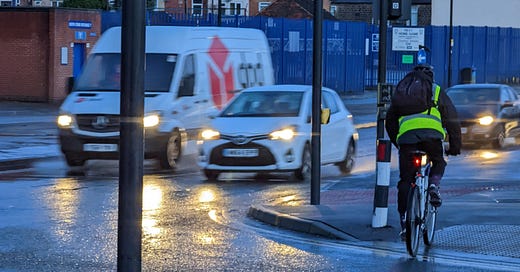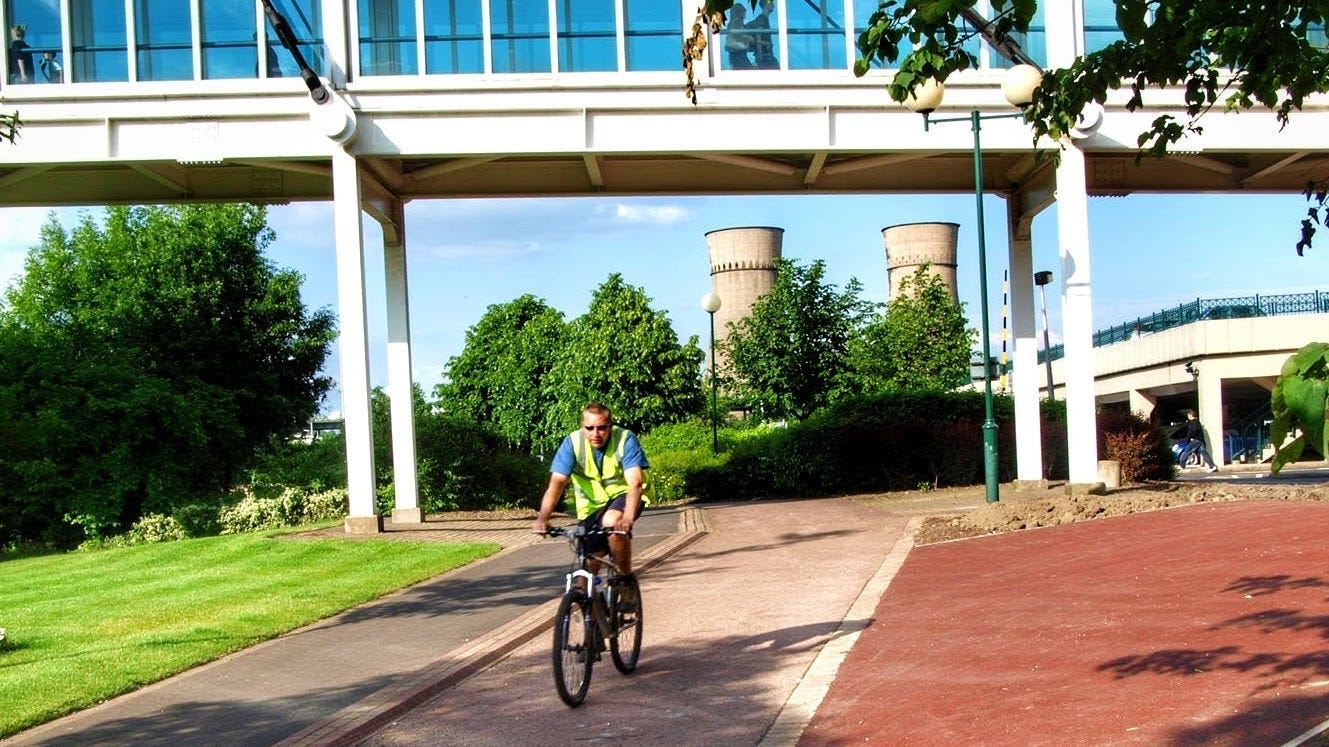“Sheffield on course to massively miss its 2030 net-zero target, new figures for 2024 reveal”
This headline article by Love Sheffield friend and Now Then magazine editor, Sam Gregory, paints a stark picture - one that, sadly, doesn't surprise me. Sheffield's projected failure to meet its 2030 net-zero target, and the broader national inertia on climate action, are deeply concerning. But, as always, I believe the path forward lies in deeper connection – and a radical shift in how we approach these challenges.
Sam’s article highlights several critical points that resonate strongly with the core ideas of "Uniting Hearts, Igniting Change" and Project Ignite:
The Illusion of Progress: Sam exposes the gap between declared targets and actual progress. This isn't unique to Sheffield; it's a systemic issue. We're often presented with "plans" and "initiatives" that lack the teeth, the funding, and, crucially, the genuine commitment to achieve real change. He refers to inertia - and it seems to me that this is driven by a lack of connection, which stems from a lack of purpose.
The "Growth Above All" Fallacy: The government's obsession with economic growth, seemingly at any cost, is a fundamental disconnect from the reality of the climate crisis. It's a transactional, zero-sum mindset that prioritises short-term gains over long-term well-being, both for people and the planet.
The Fragmentation of Responsibility: Richard Sulley's point about the lack of a "single actor or agency" responsible for delivering the necessary reductions is spot on. This fragmentation creates a diffusion of responsibility, where everyone points fingers and no one truly takes ownership.
The Need for Local Agency: Sam’s article, perhaps unintentionally, underscores the importance of local action and community-led initiatives. While national policy is crucial, it's at the local level, where people connect with their immediate environment and with each other, that real change can take root.
Top down decision making is flawed. As one activist put it, “After 20 years in this space, I’ve realised that none of these decisions are truly evidence-based.” This highlights a deep disconnect between policy and reality - one that demands urgent change.
Another activist's statement in that meeting – "You don't need to be commissioned to communicate" – is incredibly powerful. It speaks to the inherent agency we all possess, the right, and indeed the responsibility, to speak our truth and contribute to the collective good. It challenges the notion that change must always come from "above," from experts or authorities. It reminds us that the wisdom, the solutions, often reside within our communities with good connection to our wider society.
This brings me to the crucial point: How do we move forward? Project Ignite, informed by the principles in "Uniting Hearts, Igniting Change", offers a framework, a way of thinking and acting that I believe can help us bridge these disconnections:
Embrace Collective Intelligence: We need to move beyond the top-down, expert-driven model of decision-making. We need to tap into the distributed intelligence of our communities, recognising that those closest to the problems often hold the most innovative and effective solutions. The stalled Citizens' Assembly is a prime example of a missed opportunity.
Reframe "Growth": We need to challenge the dominant narrative of "growth at all costs." We need to redefine prosperity, shifting our focus from purely economic measures to encompass well-being, social justice, and environmental sustainability. This is about moving from a "me" to a "we" perspective, as I discuss in the book.
Cherish Authentic Connection: We need to create spaces – both physical and virtual – where people can connect genuinely, share their concerns, and collaborate on solutions. This means prioritising kindness, compassion, and creativity in all our interactions.
Invest in Community, Not Just Infrastructure: Funding should be seen as an investment in community resilience, not a handout or a transaction. It should empower local communities to develop their own solutions, not impose external agendas. This speaks directly to the idea of "contributive justice" – everyone has a right and a desire to contribute, and we need to create the conditions for that to happen.
Hold Leadership Accountable: We need to demand transparency and accountability from our leaders, both local and national. We need to challenge the "place-blind" policies and the short-term thinking that have led us to this point. And, crucially, we need to recognise that leadership isn't just about those in formal positions of power; it's about each of us stepping up and taking responsibility for creating the change we want to see.
Local, Flexible Solutions: We need to recognise that communities must have the flexibility to adapt to their unique circumstances and to respond to real-world needs, not rigid, top-down mandates.
The situation is urgent, no doubt. But it's not hopeless. We have the knowledge, the tools, and, most importantly, the human capacity to create a different future. It starts with connection – to our values, to each other, and to the planet. It starts with recognising that even the smallest act of kindness, of collaboration, of speaking truth to power, can create ripples that grow into waves of change.
Sheffield, with its history of grassroots activism and community spirit, is well-positioned to lead the way. Let's use this moment of reckoning – this clear evidence of our failure to meet our targets – as a catalyst for a new kind of conversation, a new kind of action, and a new kind of future. A future where we truly unite hearts and ignite change, not just in Sheffield, but across the globe.
With hope and determination,
Brian Mosley
Founder, Love Sheffield & Project Ignite
Author of "Uniting Hearts, Igniting Change"







I guess you see the difference between true greenism, and the hypocrisy of fake greenism that only disguises capitalism? How can we take seriously any government on any Cop-Out meeting when they deplete our economies to fund further war, destruction, resource plundering, and pollution in Europe and Middle East, and then expect us to pick up the tab for that, greenism and all else?